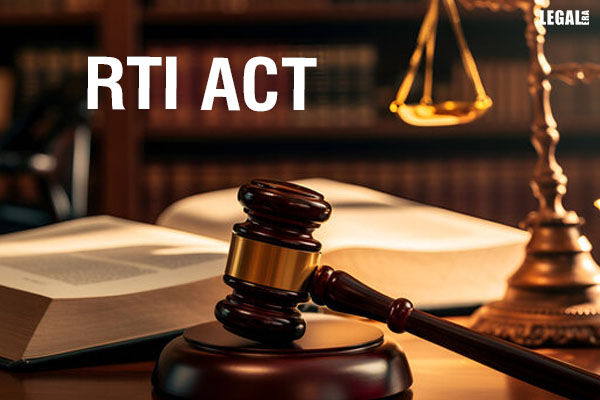
Supreme Court rulings limit RTI scope to existing records, not interpretations
RTI request for insolvency process advice rejected as beyond scope of information under RTI Act
In a significant interpretation of the Right to Information Act, 2005, the First Appellate Authority of the Insolvency and Bankruptcy Board of India has upheld the decision of the Central Public Information Officer, reiterating that queries seeking professional opinion or advice fall outside the ambit of “information” as defined under Section 2(f) of the Act. The ruling emerges from an appeal filed by Mr. Kuldeep Jain, who had sought the IBBI’s response regarding a corporate debtor’s proposal to withdraw from the insolvency resolution process under Section 12A of the Insolvency and Bankruptcy Code, 2016.
Background of the Case
Mr. Jain, through an RTI application, had requested the IBBI’s opinion on whether the proposal of Orior Developers & Infrastructure Private Limited to exit the Corporate Insolvency Resolution Process under Section 12A of the IBC could be entertained. The CPIO responded by declining to furnish the information, asserting that the applicant’s queries were in the nature of seeking an explanation or professional advice — a category not covered under the RTI framework. Dissatisfied with the response, the appellant escalated the matter to the First Appellate Authority, challenging the denial and contending that the information sought should be accessible under the RTI Act.
Interpretation of ‘Information’ Under the RTI Act
The authority’s response was grounded in the precise definition of “information” as per Section 2(f) of the RTI Act, which encompasses “any material in any form” such as records, documents, emails, opinions, advices, press releases, and data held by a public authority. However, the definition is confined to existing material records and does not extend to the creation of new information, explanation of existing policies, or rendering of opinions. Further, Section 2(j), which defines the “right to information,” emphasizes that access must be limited to material “held by or under the control of” the concerned authority.
Nature of the Information Requested
The appeal was scrutinized on the basis that the applicant did not seek existing documents, records, or data, but rather requested interpretative advice on how the Board might respond to a specific scenario under the IBC. The Appellate Authority concluded that the query, being advisory in nature, could not be classified as information within the meaning of the RTI Act. This aligns with prior interpretations, including the Central Information Commission’s (CIC) ruling in Dr. D.V. Rao v. Yashwant Singh & Anr, where it was held that the RTI mechanism is not intended to answer hypothetical or interrogative queries seeking explanations or justifications, especially those framed with prefixes such as “why,” “what,” “when,” or “whether.”
Judicial Precedents Cited
To strengthen its position, the Appellate Authority referred to the landmark Supreme Court judgment in CBSE & Anr. v. Aditya Bandopadhyay & Ors. [2011 (8) SCC 497], where the Court ruled that public authorities are not obligated to generate or infer information, provide opinions, or undertake reasoning in response to an RTI query. The inclusion of “opinion” or “advice” in Section 2(f), it clarified, is restricted to such elements already available in recorded material.
Final Decision
Based on the above reasoning, the First Appellate Authority upheld the CPIO’s denial of information. The appeal was dismissed on the grounds that it sought professional advice beyond the purview of the RTI Act, and that no existing record or document containing such advice was held by the IBBI.
This decision reinforces the limited yet essential scope of the RTI Act — designed to promote transparency through access to existing public records, not as a channel for soliciting expert opinions or policy clarifications from public institutions. The ruling sets a reaffirmed boundary for what constitutes “information” under the Act, serving as a reference point for both public authorities and applicants. For professionals engaged in insolvency matters, the judgment underscores the need to seek regulatory clarity through appropriate legal or consultative channels, rather than relying on RTI as a tool for interpretive guidance.